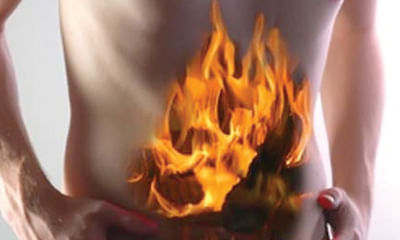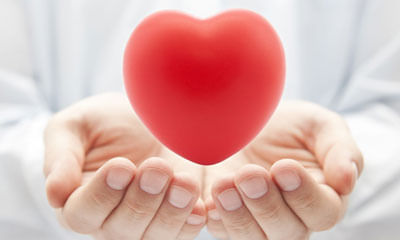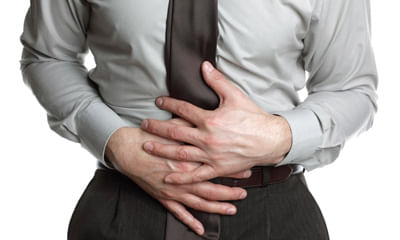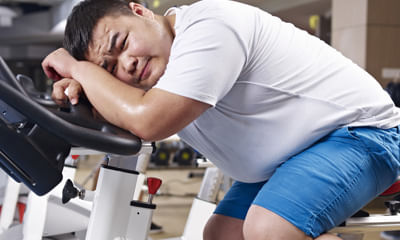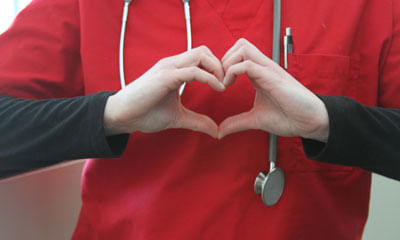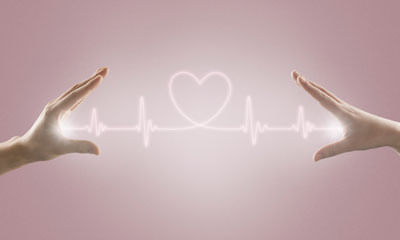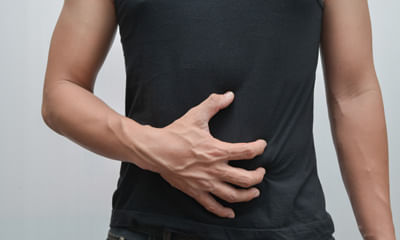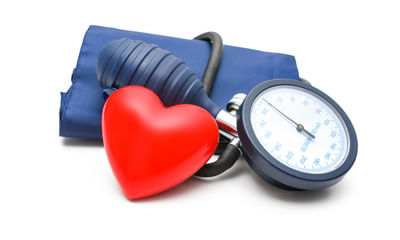Heart Thumping In Chest
This has been happening for almost a year. When I eat cooked food, my heart starts beating fast and I can feel my heart ...
Ask Free Question
What r other symptoms that you r experiencing? By doing what like walking, exertion, eating or empty stomach- it increases or decreases in intensity. For how much time the pain remains? Is there stiffness also? How is your appetite? R you constipated? Any problem in urine? I need to know more to be able to make diagnosis. In the meanwhile follow this 1. Don't take tea empty stomach. Eat something like a banana (if you are not diabetic) or any seasonal fruit or soaked almonds and a glass of water first thing in the morning (within 10 mins of waking up). No only biscuits or rusk will not do. 2. Don't overeat 3. Take your breakfast every day. Don't skip it. U should eat whatever your mother or grandparent eat in bfast. I mean to say whatever is your traditional food. If punjabi eat paratha, if belongs to south then take idli/ dosa etc. 4. Have light meals every 2 hours (in addition to your breakfast, lunch n dinner) e.g. Nariyal paani, chaach, a handful of dry fruits, a handful of peanuts, any fresh n seasonal fruit, a cup of curd/milk etc 5. Finish your dinner at least 2 hours before going to sleep. 6. Maintain active life style7. Avoid fast foods, spicy n fried foods, carbonated beverages 8. Take a lot of green vegetables n fruit. 9. Drink lot of water.10. Everyday preferably sleep on same time exercise in the form of yoga, cycling, swimming, gym etc. Till lockdown do suryanamaskar every day. Https://www.youtube.com/watch? V=wmhmazurgvsandfeature=youtu. Be for this homeopathy offers good results. Consult online with details.
I am 21 years old and my heart beat is always 110 or near 100 and heart beat fast during sleeping and I got checked my v ...
Ask Free Question
It can be because of many reasons like anemia, stress/anxiety, thyroid etc. Get your thyroid profile, cbc, blood sugar fasting checked from some lab. In the meanwhile follow this 1. Don't take tea empty stomach. Eat something like a banana (if you are not diabetic) or any seasonal fruit or soaked almonds and a glass of water first thing in the morning (within 10 mins of waking up). No only biscuits or rusk will not do. 2. Don't overeat 3. Take your breakfast every day. Don't skip it. U should eat whatever your mother or grandparent eat in bfast. I mean to say whatever is your traditional food. If punjabi eat paratha, if belongs to south then take idli/ dosa etc. 4. Have light meals every 2 hours (in addition to your breakfast, lunch n dinner) e.g. Nariyal paani, chaach, a handful of dry fruits, a handful of peanuts, any fresh n seasonal fruit, a cup of curd/milk etc 5. Finish your dinner at least 2 hours before going to sleep. 6. Maintain active life style7. Avoid fast foods, spicy n fried foods, carbonated beverages 8. Take a lot of green vegetables n fruit. 9. Drink lot of water.10. Everyday preferably sleep on same time exercise in the form of yoga, cycling, swimming, gym etc.For more details, you can consult me.
Hello, I am 21 male, I started feeling my heart pulsation all over my body 1 year ago. I had my ekg and echocardiography ...
Ask Free Question
Heart palpitations are abnormal or irregular heartbeats that cause a thumping or fluttering feeling in your chest — sometimes also described as "missing a beat. Palpitations can occur with heart rates that are too rapid or too slow. They can be triggered by stress, exercise, diet, medication and sometimes by a medical condition. Although heart palpitations can be a worrisome or a strange experience, they're usually harmless. In most cases, it's possible to find the cause and address it in order to reduce palpitations. Rest and take a break. Some people experience heart palpitations due to physical overexertion or being too active; however, an increased heart rate from exercise or anxiety (called tachycardia) is not the same as palpitations. Both can happen at the same time, although palpitations are defined best as unusual heart beats, not just fast heart beats. If your palpitations seem to be sometimes triggered by exercise, then stop what you're doing and rest for five to 10 minutes and catch your breath. Alternatively, reduce your exertions or change your exercise to something less strenuous. Walk instead of jogging, for example. Lift smaller weights. Gently tread water in the pool instead of doing strokes. Resting heart rates vary between people, but it's typically between 60 and 100 beats per minute. Palpitations can occur above, below or within the normal heart beat range. Reduce your stress/anxiety. Moderate-to-high levels of stress and anxiety are relatively common triggers for heart palpitations due to the release of too much "stress hormones" into the bloodstream. Thus, you may be able to prevent or reduce your palpitations by managing how you react or respond to stressful situations. Stress-relieving techniques like yoga, tai chi, deep breathing, visualization, meditation, biofeedback and aromatherapy are all helpful for promoting relaxation and better heart health. Ask at your local gym or health clinic about joining a yoga or tai chi class. Taking deep breaths can naturally lower your heart rate and reduce the occurrence of heart palpitations, especially if you practice positive visualizations or guided imagery. Buy some relaxing aromatherapy candles (lavender scented, for example) and light them in the evenings prior to going to bed. Don't forget to get enough sleep — at least eight hours per night, although some people need a little more. A chronic lack of sleep can lead to anxiety and heart palpitations. Remove yourself from stressful situations, such as arguments. Quit focusing on financial problems. Stop watching scary movies or shows. Avoid consuming stimulants. There are a number of substances that affect your central nervous system (cns) and can trigger heart palpitations, including alcohol, caffeine, nicotine, illicit drugs (such as cocaine and amphetamines) and some over-the-counter medications (particularly cold and cough medicines. Thus, if you're having periodic heart palpitations, consider what you're putting into your body on a regular basis, because it could very likely be the cause. Vagal maneuvers are simple actions that you can do at home to affect your vagus nerve, which is the primary one that regulates your heart rate.] vagal maneuvers can slow your heart rate down and stop palpitations within seconds if done correctly. The valsalva technique involves holding your breath and bearing down as if you're having a bowel movement for about 15– 20 seconds — it increases your intrathoracic pressure and stimulates the vagus nerve. The valsalva technique can change the rhythm of electrical impulses in your heart, help your heart rate return to normal and reduce palpitations. The valsalva maneuver shouldn't be done if you have heart disease or are advanced in age, as it may increase the risk of stroke. Activate your diving reflex. The diving reflex gets activated when your head or face gets cold for more than a few seconds — your heart rate slows down to reduce blood flow in an attempt to survive, which is helpful when submerged in cold water. To trigger this survival reflex, place very cold water or an ice pack against your face for about 10 seconds. Your heart rate and palpitations should reduce pretty quickly. Dip your face or submerge your head in cold water. Put a wet face cloth in the freezer for 30 minutes then press it against your face. Alternatively, drinking a glass of very cold water will cool the hard palate of your upper mouth and also mildly trigger the diving reflex. Vagal maneuvers are simple and generally quite safe to do, but they should be done as soon as you realize you're experiencing palpitations for best results. Do not attempt vagal maneuvers while standing — they can sometimes cause dizziness and fainting. Ry coughing a bunch of times. You can also try coughing forcefully (or clearing your throat) multiple times in efforts to move your diaphragm, increase intra-thoracic pressure, and stimulate your vagus nerve. In essence, coughing creates the same physiological effects as bearing down (the valsalva technique), but some people may find it easier to perform. When coughing, it must be forceful enough and sustained — a single, light cough won't likely trigger a vagal response. Make sure to completely swallow any food you're eating or beverages you're drinking in order to prevent the risk of choking. For medication consult online in private.
Dear doctor I am suffering from severe gastritis. One week ago done ecg. Blood test all are normal. Having palpitations ...
Ask Free Question
Heart palpitations are abnormal or irregular heartbeats that cause a thumping or fluttering feeling in your chest — sometimes also described as "missing a beat. Palpitations can occur with heart rates that are too rapid or too slow. They can be triggered by stress, exercise, diet, medication and sometimes by a medical condition. Although heart palpitations can be a worrisome or a strange experience, they're usually harmless. In most cases, it's possible to find the cause and address it in order to reduce palpitations. Rest and take a break. Some people experience heart palpitations due to physical overexertion or being too active; however, an increased heart rate from exercise or anxiety (called tachycardia) is not the same as palpitations. Both can happen at the same time, although palpitations are defined best as unusual heart beats, not just fast heart beats. If your palpitations seem to be sometimes triggered by exercise, then stop what you're doing and rest for five to 10 minutes and catch your breath. Alternatively, reduce your exertions or change your exercise to something less strenuous. Walk instead of jogging, for example. Lift smaller weights. Gently tread water in the pool instead of doing strokes. Resting heart rates vary between people, but it's typically between 60 and 100 beats per minute. Palpitations can occur above, below or within the normal heart beat range. Reduce your stress/anxiety. Moderate-to-high levels of stress and anxiety are relatively common triggers for heart palpitations due to the release of too much "stress hormones" into the bloodstream. Thus, you may be able to prevent or reduce your palpitations by managing how you react or respond to stressful situations. Stress-relieving techniques like yoga, tai chi, deep breathing, visualization, meditation, biofeedback and aromatherapy are all helpful for promoting relaxation and better heart health. Ask at your local gym or health clinic about joining a yoga or tai chi class. Taking deep breaths can naturally lower your heart rate and reduce the occurrence of heart palpitations, especially if you practice positive visualizations or guided imagery. Buy some relaxing aromatherapy candles (lavender scented, for example) and light them in the evenings prior to going to bed. Don't forget to get enough sleep — at least eight hours per night, although some people need a little more. A chronic lack of sleep can lead to anxiety and heart palpitations. Remove yourself from stressful situations, such as arguments. Quit focusing on financial problems. Stop watching scary movies or shows. Avoid consuming stimulants. There are a number of substances that affect your central nervous system (cns) and can trigger heart palpitations, including alcohol, caffeine, nicotine, illicit drugs (such as cocaine and amphetamines) and some over-the-counter medications (particularly cold and cough medicines. Thus, if you're having periodic heart palpitations, consider what you're putting into your body on a regular basis, because it could very likely be the cause. Vagal maneuvers are simple actions that you can do at home to affect your vagus nerve, which is the primary one that regulates your heart rate.] vagal maneuvers can slow your heart rate down and stop palpitations within seconds if done correctly. The valsalva technique involves holding your breath and bearing down as if you're having a bowel movement for about 15– 20 seconds — it increases your intrathoracic pressure and stimulates the vagus nerve. The valsalva technique can change the rhythm of electrical impulses in your heart, help your heart rate return to normal and reduce palpitations. The valsalva maneuver shouldn't be done if you have heart disease or are advanced in age, as it may increase the risk of stroke. Activate your diving reflex. The diving reflex gets activated when your head or face gets cold for more than a few seconds — your heart rate slows down to reduce blood flow in an attempt to survive, which is helpful when submerged in cold water. To trigger this survival reflex, place very cold water or an ice pack against your face for about 10 seconds. Your heart rate and palpitations should reduce pretty quickly. Dip your face or submerge your head in cold water. Put a wet face cloth in the freezer for 30 minutes then press it against your face. Alternatively, drinking a glass of very cold water will cool the hard palate of your upper mouth and also mildly trigger the diving reflex. Vagal maneuvers are simple and generally quite safe to do, but they should be done as soon as you realize you're experiencing palpitations for best results. Do not attempt vagal maneuvers while standing — they can sometimes cause dizziness and fainting. Ry coughing a bunch of times. You can also try coughing forcefully (or clearing your throat) multiple times in efforts to move your diaphragm, increase intra-thoracic pressure, and stimulate your vagus nerve. In essence, coughing creates the same physiological effects as bearing down (the valsalva technique), but some people may find it easier to perform. When coughing, it must be forceful enough and sustained — a single, light cough won't likely trigger a vagal response. Make sure to completely swallow any food you're eating or beverages you're drinking in order to prevent the risk of choking. If you're unsure, ask your doctor for a demonstration of vagal maneuvers. For medication consult online in private.
Hello Dr. I am male age 28 yrs, weight 75 kg, hight 5'8,.from last one year I have facing palpitation on all over my bod ...
Ask Free Question
Get your thyroid profile, bsl, ecg, holter monitoring done. Heart palpitations are abnormal or irregular heartbeats that cause a thumping or fluttering feeling in your chest — sometimes also described as "missing a beat. Palpitations can occur with heart rates that are too rapid or too slow. They can be triggered by stress, exercise, diet, medication and sometimes by a medical condition. Although heart palpitations can be a worrisome or a strange experience, they're usually harmless. In most cases, it's possible to find the cause and address it in order to reduce palpitations. Rest and take a break. Some people experience heart palpitations due to physical overexertion or being too active; however, an increased heart rate from exercise or anxiety (called tachycardia) is not the same as palpitations. Both can happen at the same time, although palpitations are defined best as unusual heart beats, not just fast heart beats. If your palpitations seem to be sometimes triggered by exercise, then stop what you're doing and rest for five to 10 minutes and catch your breath. Alternatively, reduce your exertions or change your exercise to something less strenuous. Walk instead of jogging, for example. Lift smaller weights. Gently tread water in the pool instead of doing strokes. Resting heart rates vary between people, but it's typically between 60 and 100 beats per minute. Palpitations can occur above, below or within the normal heart beat range. Reduce your stress/anxiety. Moderate-to-high levels of stress and anxiety are relatively common triggers for heart palpitations due to the release of too much "stress hormones" into the bloodstream. Thus, you may be able to prevent or reduce your palpitations by managing how you react or respond to stressful situations. Stress-relieving techniques like yoga, tai chi, deep breathing, visualization, meditation, biofeedback and aromatherapy are all helpful for promoting relaxation and better heart health. Ask at your local gym or health clinic about joining a yoga or tai chi class. Taking deep breaths can naturally lower your heart rate and reduce the occurrence of heart palpitations, especially if you practice positive visualizations or guided imagery. Buy some relaxing aromatherapy candles (lavender scented, for example) and light them in the evenings prior to going to bed. Don't forget to get enough sleep — at least eight hours per night, although some people need a little more. A chronic lack of sleep can lead to anxiety and heart palpitations. Remove yourself from stressful situations, such as arguments. Quit focusing on financial problems. Stop watching scary movies or shows. Avoid consuming stimulants. There are a number of substances that affect your central nervous system (cns) and can trigger heart palpitations, including alcohol, caffeine, nicotine, illicit drugs (such as cocaine and amphetamines) and some over-the-counter medications (particularly cold and cough medicines. Thus, if you're having periodic heart palpitations, consider what you're putting into your body on a regular basis, because it could very likely be the cause. Vagal maneuvers are simple actions that you can do at home to affect your vagus nerve, which is the primary one that regulates your heart rate.] vagal maneuvers can slow your heart rate down and stop palpitations within seconds if done correctly. The valsalva technique involves holding your breath and bearing down as if you're having a bowel movement for about 15– 20 seconds — it increases your intrathoracic pressure and stimulates the vagus nerve. The valsalva technique can change the rhythm of electrical impulses in your heart, help your heart rate return to normal and reduce palpitations. The valsalva maneuver shouldn't be done if you have heart disease or are advanced in age, as it may increase the risk of stroke. Activate your diving reflex. The diving reflex gets activated when your head or face gets cold for more than a few seconds — your heart rate slows down to reduce blood flow in an attempt to survive, which is helpful when submerged in cold water. To trigger this survival reflex, place very cold water or an ice pack against your face for about 10 seconds. Your heart rate and palpitations should reduce pretty quickly. Dip your face or submerge your head in cold water. Put a wet face cloth in the freezer for 30 minutes then press it against your face. Alternatively, drinking a glass of very cold water will cool the hard palate of your upper mouth and also mildly trigger the diving reflex. Vagal maneuvers are simple and generally quite safe to do, but they should be done as soon as you realize you're experiencing palpitations for best results. Do not attempt vagal maneuvers while standing — they can sometimes cause dizziness and fainting. Ry coughing a bunch of times. You can also try coughing forcefully (or clearing your throat) multiple times in efforts to move your diaphragm, increase intra-thoracic pressure, and stimulate your vagus nerve. In essence, coughing creates the same physiological effects as bearing down (the valsalva technique), but some people may find it easier to perform. When coughing, it must be forceful enough and sustained — a single, light cough won't likely trigger a vagal response. Make sure to completely swallow any food you're eating or beverages you're drinking in order to prevent the risk of choking. If you're unsure, ask your doctor for a demonstration of vagal maneuvers. For medication consult online in private.
I feel palpitation all the day and anxious for the past 7 months, I went to cardiologist and did echo test and 3 ecg in ...
Ask Free Question
It's anxiety try to relax yourself -- exercise. Exercise is one of the most important things you can do to combat stress. Take a few minutes to breathe in and out in slow, deep breaths. Reduce your caffeine intake. Write it down. Chew gum. Spend time with friends and family. Laugh.Massage. Eat a healthy diet. Pursue one hobbywalk in naturemeditation. Yoga for details you can consult me.
I am Suffering from palpitation since last 18 years now I'm taking medicine prescribed by Doctor's but till date I am no ...
Ask Free Question
Heart palpitations are abnormal or irregular heartbeats that cause a thumping or fluttering feeling in your chest — sometimes also described as "missing a beat. Palpitations can occur with heart rates that are too rapid or too slow. They can be triggered by stress, exercise, diet, medication and sometimes by a medical condition. Although heart palpitations can be a worrisome or a strange experience, they're usually harmless. In most cases, it's possible to find the cause and address it in order to reduce palpitations. Rest and take a break. Some people experience heart palpitations due to physical overexertion or being too active; however, an increased heart rate from exercise or anxiety (called tachycardia) is not the same as palpitations. Both can happen at the same time, although palpitations are defined best as unusual heart beats, not just fast heart beats. If your palpitations seem to be sometimes triggered by exercise, then stop what you're doing and rest for five to 10 minutes and catch your breath. Alternatively, reduce your exertions or change your exercise to something less strenuous. Walk instead of jogging, for example. Lift smaller weights. Gently tread water in the pool instead of doing strokes. Resting heart rates vary between people, but it's typically between 60 and 100 beats per minute. Palpitations can occur above, below or within the normal heart beat range. Reduce your stress/anxiety. Moderate-to-high levels of stress and anxiety are relatively common triggers for heart palpitations due to the release of too much "stress hormones" into the bloodstream. Thus, you may be able to prevent or reduce your palpitations by managing how you react or respond to stressful situations. Stress-relieving techniques like yoga, tai chi, deep breathing, visualization, meditation, biofeedback and aromatherapy are all helpful for promoting relaxation and better heart health. Ask at your local gym, community center, church or health clinic about joining a yoga or tai chi class. Taking deep breaths can naturally lower your heart rate and reduce the occurrence of heart palpitations, especially if you practice positive visualizations or guided imagery. Buy some relaxing aromatherapy candles (lavender scented, for example) and light them in the evenings prior to going to bed. Don't forget to get enough sleep — at least eight hours per night, although some people need a little more. A chronic lack of sleep can lead to anxiety and heart palpitations. Remove yourself from stressful situations, such as arguments. Quit focusing on financial problems. Stop watching scary movies or shows. Avoid consuming stimulants. There are a number of substances that affect your central nervous system (CNS) and can trigger heart palpitations, including alcohol, caffeine, nicotine, illicit drugs (such as cocaine and amphetamines) and some over-the-counter medications (particularly cold and cough medicines. Thus, if you're having periodic heart palpitations, consider what you're putting into your body on a regular basis, because it could very likely be the cause. Vagal maneuvers are simple actions that you can do at home to affect your vagus nerve, which is the primary one that regulates your heart rate.] Vagal maneuvers can slow your heart rate down and stop palpitations within seconds if done correctly. The Valsalva technique involves holding your breath and bearing down as if you're having a bowel movement for about 15– 20 seconds — it increases your intrathoracic pressure and stimulates the vagus nerve. The Valsalva technique can change the rhythm of electrical impulses in your heart, help your heart rate return to normal and reduce palpitations. The Valsalva maneuver shouldn't be done if you have heart disease or are advanced in age, as it may increase the risk of stroke. Activate your diving reflex. The diving reflex gets activated when your head or face gets cold for more than a few seconds — your heart rate slows down to reduce blood flow in an attempt to survive, which is helpful when submerged in cold water. To trigger this survival reflex, place very cold water or an ice pack against your face for about 10 seconds. Your heart rate and palpitations should reduce pretty quickly. Dip your face or submerge your head in cold water. Put a wet face cloth in the freezer for 30 minutes then press it against your face. Alternatively, drinking a glass of very cold water will cool the hard palate of your upper mouth and also mildly trigger the diving reflex. Vagal maneuvers are simple and generally quite safe to do, but they should be done as soon as you realize you're experiencing palpitations for best results. Do not attempt vagal maneuvers while standing — they can sometimes cause dizziness and fainting. Ry coughing a bunch of times. You can also try coughing forcefully (or clearing your throat) multiple times in efforts to move your diaphragm, increase intra-thoracic pressure, and stimulate your vagus nerve. In essence, coughing creates the same physiological effects as bearing down (the Valsalva technique), but some people may find it easier to perform. When coughing, it must be forceful enough and sustained — a single, light cough won't likely trigger a vagal response. Make sure to completely swallow any food you're eating or beverages you're drinking in order to prevent the risk of choking. If you're unsure, ask your doctor for a demonstration of vagal maneuvers. FOR MEDICATION CONSULT ONLINE IN PRIVATE.
I am 26 year old. When I sleep my brain suddenly round on and then heart beat very increased. It is happening from 5 mon ...
Ask Free Question
Heart palpitations are abnormal or irregular heartbeats that cause a thumping or fluttering feeling in your chest — sometimes also described as "missing a beat. Palpitations can occur with heart rates that are too rapid or too slow. They can be triggered by stress, exercise, diet, medication and sometimes by a medical condition. Although heart palpitations can be a worrisome or a strange experience, they're usually harmless. In most cases, it's possible to find the cause and address it in order to reduce palpitations. Rest and take a break. Some people experience heart palpitations due to physical overexertion or being too active; however, an increased heart rate from exercise or anxiety (called tachycardia) is not the same as palpitations. Both can happen at the same time, although palpitations are defined best as unusual heart beats, not just fast heart beats. If your palpitations seem to be sometimes triggered by exercise, then stop what you're doing and rest for five to 10 minutes and catch your breath. Alternatively, reduce your exertions or change your exercise to something less strenuous. Walk instead of jogging, for example. Lift smaller weights. Gently tread water in the pool instead of doing strokes. Resting heart rates vary between people, but it's typically between 60 and 100 beats per minute. Palpitations can occur above, below or within the normal heart beat range. Reduce your stress/anxiety. Moderate-to-high levels of stress and anxiety are relatively common triggers for heart palpitations due to the release of too much "stress hormones" into the bloodstream. Thus, you may be able to prevent or reduce your palpitations by managing how you react or respond to stressful situations. Stress-relieving techniques like yoga, tai chi, deep breathing, visualization, meditation, biofeedback and aromatherapy are all helpful for promoting relaxation and better heart health. Ask at your local gym, community center, church or health clinic about joining a yoga or tai chi class. Taking deep breaths can naturally lower your heart rate and reduce the occurrence of heart palpitations, especially if you practice positive visualizations or guided imagery. Buy some relaxing aromatherapy candles (lavender scented, for example) and light them in the evenings prior to going to bed. Don't forget to get enough sleep — at least eight hours per night, although some people need a little more. A chronic lack of sleep can lead to anxiety and heart palpitations. Remove yourself from stressful situations, such as arguments. Quit focusing on financial problems. Stop watching scary movies or shows. Avoid consuming stimulants. There are a number of substances that affect your central nervous system (CNS) and can trigger heart palpitations, including alcohol, caffeine, nicotine, illicit drugs (such as cocaine and amphetamines) and some over-the-counter medications (particularly cold and cough medicines. Thus, if you're having periodic heart palpitations, consider what you're putting into your body on a regular basis, because it could very likely be the cause. Vagal maneuvers are simple actions that you can do at home to affect your vagus nerve, which is the primary one that regulates your heart rate.] Vagal maneuvers can slow your heart rate down and stop palpitations within seconds if done correctly. The Valsalva technique involves holding your breath and bearing down as if you're having a bowel movement for about 15– 20 seconds — it increases your intrathoracic pressure and stimulates the vagus nerve. The Valsalva technique can change the rhythm of electrical impulses in your heart, help your heart rate return to normal and reduce palpitations. The Valsalva maneuver shouldn't be done if you have heart disease or are advanced in age, as it may increase the risk of stroke. Activate your diving reflex. The diving reflex gets activated when your head or face gets cold for more than a few seconds — your heart rate slows down to reduce blood flow in an attempt to survive, which is helpful when submerged in cold water. To trigger this survival reflex, place very cold water or an ice pack against your face for about 10 seconds. Your heart rate and palpitations should reduce pretty quickly. Dip your face or submerge your head in cold water. Put a wet face cloth in the freezer for 30 minutes then press it against your face. Alternatively, drinking a glass of very cold water will cool the hard palate of your upper mouth and also mildly trigger the diving reflex. Vagal maneuvers are simple and generally quite safe to do, but they should be done as soon as you realize you're experiencing palpitations for best results. Do not attempt vagal maneuvers while standing — they can sometimes cause dizziness and fainting. Ry coughing a bunch of times. You can also try coughing forcefully (or clearing your throat) multiple times in efforts to move your diaphragm, increase intra-thoracic pressure, and stimulate your vagus nerve. In essence, coughing creates the same physiological effects as bearing down (the Valsalva technique), but some people may find it easier to perform. When coughing, it must be forceful enough and sustained — a single, light cough won't likely trigger a vagal response. Make sure to completely swallow any food you're eating or beverages you're drinking in order to prevent the risk of choking. If you're unsure, ask your doctor for a demonstration of vagal maneuvers. FOR MEDICATION CONSULT ONLINE IN PRIVATE.
I am 28 years old, I have gastric issues, like acid reflux, before I used to have spicy oily foods but from one-two I ha ...
Ask Free Question
ACID PEPTIC DISORDERS "Acid peptic disease" is a collective term used to include many conditions such as gastro-esophageal reflux disease (GERD), gastritis, gastric ulcer, duodenal ulcer, esophageal ulcer, Zollinger Ellison Syndrome (ZES) and Meckel's diverticular ulcer. Acid peptic disease is a result of either a decreased gastric mucosal defense or an excessive acid production. CAUSES 1.Infections:Helicobacter pylori: H.pylori is responsible for around 60%-90% of all gastric and duodenal ulcers. 2.Drug induced: More pain Killer uses and steroids uses on body. 3.Addictions:Smoking, Alcohol, Tobacco,Tea Coffee etc. 4.Diet :More Spicy Oily Junk Fast food, masal food Infected food. 5.Other Diseases: Liver Kidney intestine diseases 6.Bad Life style and habits: Excess tensed hurried work, Night working, irregular food habits, more fastings 7.Stress-More Pychologiacl and emotional disturbance stress tension 8.Harmonal issues- Hypothyroidism Hyperthyroidism stress harmones etc 9.Hypersensitivity-Allergy to specific food or drugs. 10. Genetic :family history of APD "HURRY WORRY CURRY LEADS APD" SYMPTOMS abdominal pain, Abdominal Bloating, Flatulence Chest burning ,Heart burning. Nausea, water brash, vomiting, Bitter or sometimes straw coloured Indigestion loss of appetite or More Appetite I.e.Apetite imbalances Weight gain/ weight loss depends on type of ulcers TIPS TO CONTROL APD DIET CHANGES TO TAKE -Sweet Pungent and Astringent items, Cooked food, All leafy vegetables, Sprouts,Salads, Sweet fruits High fiber Diet and Regularisied timely food intake TO AVOID-Spicy, Salty,Sour Masala Oily Fired Items, Snaks ,Fast food Junk Food, Processed Food, Irregular food habits AVOIDING STIMULANTS- More Tea, Coffee,Tobacco products, Alcohol drinks, Smoking etc LIFE STYLE MODIFICATIONS Avoid hurried tensed work, late night works, sedentary lifestyles. Get proper Sleep. Calm behaviour and pleasant enthusiastic working environment, Doing Exercises jogging running skipping swimming Aerobics etc MANAGING STRESS 1.Meditation- Deep Rexation Techiniques to manage stress and control hormonal imbalance. 2.Yoga Pranayam: Sahavasan Panvanmuktasan, Vajrasan.Sitali Pranayam sitkarti Pranayam. Anulom vilom Pranayam. COUNSELLING Get counselling for psychological and emotional problems it will give miraculous recovery. PROPER MEDICAL ADVICE "HALF TREATMENT IS HALF CURE" AVOID HURRAY WORRY CURRY" Only Medication is not enough. Proper medical advice and diagnosis is important to find out complete cure. HYDROTHERAPY WATER AS MEDICINE Plenty of Water approximately 4 to 5 liters per day. Night kept Copper vesseled water is good for APD. HOME REMEDIES 1.Drinking COLD WATER/COLD MILK (As per digestion) kept in COPPER VESSELE for Symptomatic Relief 2.Banana Or Banana Milk shake at Night. 1. Take 2/ 3 glass of warm water in the morning before brush 2. Take more water in day 3. Take meals at fixed hrs, chew food properly/ completely, no eating quickly 4. Take small amount of food at a time, take more frequent meals - may be five times a day. 5. No spicy/ fried/ fast/ junk/processed food. 6. No smoking, chewing gum, and carbonated beverages. 6. No milk for few days, can take curd, no uncooked salad 7. Avoid constipation 8. Use nibupani (lemon water) 2/ 3 times a day 9. Do not drink/ store water in plastic bottles. 10. Relax and walk for 30 mts daily 11. Take enough rest- do not lie down immediately after eating. Take dinner 3 hrs before sleeping. No late nights 11. Keep your weight under control. 13. Avoid tea, coffee, alcohol 15. Reduce physical and mental stress. Maintain healthy life style. Do exercise regularly. 16. No unnecessary medicines for medicine contact on private chat U can consult me on number Nine five three five four two zero seven seven zero. HERB REMEDIES 1.Jesthamadu (Liquorice) Churna 5 grams over night kept in COPPER VESSELE. Drink it early morning 2.Amla aloe Vera juice 5 ml each to take with half liter of water AYURVEDIC MEDICINES 1.Avipatiikar Churna 2.Kamadugdha vati 3.Amlapitta Mishrana 4.Ampalpittantak vati I NEED your DETAILED HISTORY INVESTIGATIONS AND PREVIOUS MEDICATIONS DETAILS OF your PROBLEMS TO ASSESS your PROBLEMS IN DETAIL. I HAVE VERY GOOD AYURVEDIC TREATMENT FOR APD. SAFE EFFECTIVE NO SIDE EFFECTS. U CAN CONSULT ME FOR THIS PROBLEMS. I WISH U HAPPY HEALTHY AND PROSPEROUS LIFE AHEAD GOD BLESS YOU. Regards Dr. Arun Desai.
Hi Sir, I was taking metropol 50 mg for increased heart rate 111 BpM - beats are now 75-90 bpm & Bp is now 134/78 - 140/ ...
Ask Free Question
Eart palpitations are abnormal or irregular heartbeats that cause a thumping or fluttering feeling in your chest — sometimes also described as "missing a beat. Palpitations can occur with heart rates that are too rapid or too slow. They can be triggered by stress, exercise, diet, medication and sometimes by a medical condition. Although heart palpitations can be a worrisome or a strange experience, they're usually harmless. In most cases, it's possible to find the cause and address it in order to reduce palpitations. Rest and take a break. Some people experience heart palpitations due to physical overexertion or being too active; however, an increased heart rate from exercise or anxiety (called tachycardia) is not the same as palpitations. Both can happen at the same time, although palpitations are defined best as unusual heart beats, not just fast heart beats. If your palpitations seem to be sometimes triggered by exercise, then stop what you're doing and rest for five to 10 minutes and catch your breath. Alternatively, reduce your exertions or change your exercise to something less strenuous. Walk instead of jogging, for example. Lift smaller weights. Gently tread water in the pool instead of doing strokes. Resting heart rates vary between people, but it's typically between 60 and 100 beats per minute. Palpitations can occur above, below or within the normal heart beat range. Reduce your stress/anxiety. Moderate-to-high levels of stress and anxiety are relatively common triggers for heart palpitations due to the release of too much "stress hormones" into the bloodstream. Thus, you may be able to prevent or reduce your palpitations by managing how you react or respond to stressful situations. Stress-relieving techniques like yoga, tai chi, deep breathing, visualization, meditation, biofeedback and aromatherapy are all helpful for promoting relaxation and better heart health. Ask at your local gym, community center, church or health clinic about joining a yoga or tai chi class. Taking deep breaths can naturally lower your heart rate and reduce the occurrence of heart palpitations, especially if you practice positive visualizations or guided imagery. Buy some relaxing aromatherapy candles (lavender scented, for example) and light them in the evenings prior to going to bed. Don't forget to get enough sleep — at least eight hours per night, although some people need a little more. A chronic lack of sleep can lead to anxiety and heart palpitations. Remove yourself from stressful situations, such as arguments. Quit focusing on financial problems. Stop watching scary movies or shows. Avoid consuming stimulants. There are a number of substances that affect your central nervous system (CNS) and can trigger heart palpitations, including alcohol, caffeine, nicotine, illicit drugs (such as cocaine and amphetamines) and some over-the-counter medications (particularly cold and cough medicines. Thus, if you're having periodic heart palpitations, consider what you're putting into your body on a regular basis, because it could very likely be the cause. Vagal maneuvers are simple actions that you can do at home to affect your vagus nerve, which is the primary one that regulates your heart rate.] Vagal maneuvers can slow your heart rate down and stop palpitations within seconds if done correctly. The Valsalva technique involves holding your breath and bearing down as if you're having a bowel movement for about 15– 20 seconds — it increases your intrathoracic pressure and stimulates the vagus nerve. The Valsalva technique can change the rhythm of electrical impulses in your heart, help your heart rate return to normal and reduce palpitations. The Valsalva maneuver shouldn't be done if you have heart disease or are advanced in age, as it may increase the risk of stroke. Activate your diving reflex. The diving reflex gets activated when your head or face gets cold for more than a few seconds — your heart rate slows down to reduce blood flow in an attempt to survive, which is helpful when submerged in cold water. To trigger this survival reflex, place very cold water or an ice pack against your face for about 10 seconds. Your heart rate and palpitations should reduce pretty quickly. Dip your face or submerge your head in cold water. Put a wet face cloth in the freezer for 30 minutes then press it against your face. Alternatively, drinking a glass of very cold water will cool the hard palate of your upper mouth and also mildly trigger the diving reflex. Vagal maneuvers are simple and generally quite safe to do, but they should be done as soon as you realize you're experiencing palpitations for best results. Do not attempt vagal maneuvers while standing — they can sometimes cause dizziness and fainting. Ry coughing a bunch of times. You can also try coughing forcefully (or clearing your throat) multiple times in efforts to move your diaphragm, increase intra-thoracic pressure, and stimulate your vagus nerve. In essence, coughing creates the same physiological effects as bearing down (the Valsalva technique), but some people may find it easier to perform. When coughing, it must be forceful enough and sustained — a single, light cough won't likely trigger a vagal response. Make sure to completely swallow any food you're eating or beverages you're drinking in order to prevent the risk of choking. If you're unsure, ask your doctor for a demonstration of vagal maneuvers. FOR MEDICATION CONSULT ONLINE IN PRIVATE.

